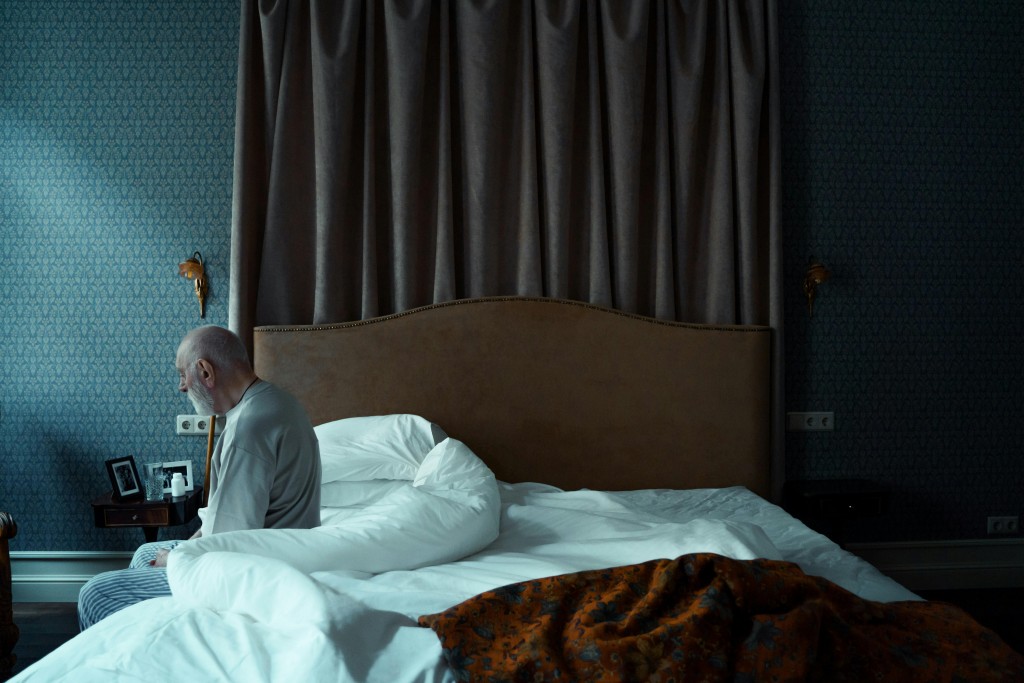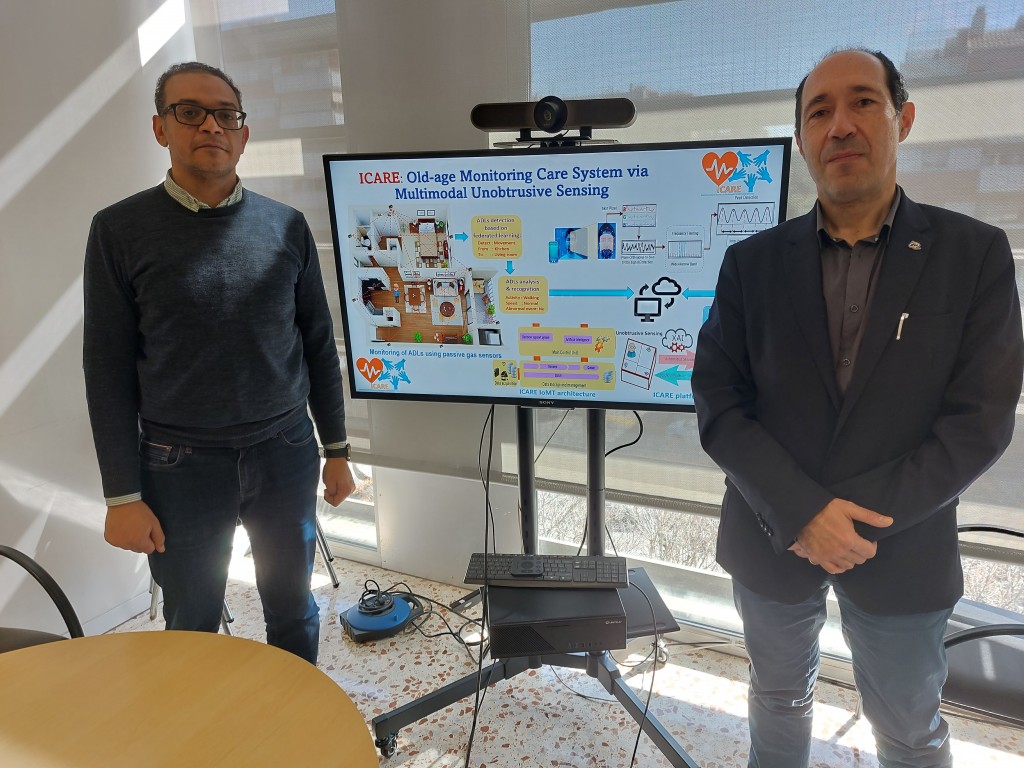19/06/2024
URV researchers devise a system to remotely monitor the activity and vital signs of vulnerable people who live alone
The project by the URV's Department of Computer Engineering and Mathematics uses artificial intelligence to collect information on patients and make recommendations to doctors and social carers

The project by the URV's Department of Computer Engineering and Mathematics uses artificial intelligence to collect information on patients and make recommendations to doctors and social carers
The Universitat Rovira i Virgili is engaged in a project that will be of great help to vulnerable people who live alone. A group of researchers from the Department of Computer Engineering and Mathematics (DEIM) led by Professor Domènec Puig are developing a computational system in order to monitor activity and measure vital signs in real time. The system uses a set of sensors to collect information which it then analyses using artificial intelligence. The results of this analysis then form the basis of recommendations that are passed on to doctors and social carers so they can better monitor the health and needs of vulnerable people.
The initiative goes by the name of the ICARE project and is funded by the Catalan Government’s Department of Social Rights through the Next Generation programme. It forms part of a collaboration between the URV’s DEIM, which provides the technical know-how, the Pere Virgili Health Research Institute, which provides medical expertise, and the Ave Maria Foundation of Sitges, which offers homes and supervised accommodation for vulnerable people. “We were clear that the technology had to introduced to people’s homes in a non-invasive way, i.e. without cameras or other elements that could disturb or alter the behaviour of people who live alone. That is why we are looking for sensors, some of which already exist and others that are being developed by collaborators, such as URV researcher Eduard Llobet, which measure the levels of certain gases and thus tell us what human activity is taking place in the home. For example, higher or lower concentrations of CO2 give us information about what the person is doing, whether they are moving, whether or not they have got out of bed, how much time they spend in the bathroom or kitchen…”, explained Domènec Puig, principal investigator of the project, which is still in the initial phase of choosing which sensors are to be used.

The sensors are distributed throughout the home and provide information that is complemented by data from a mobile application that analyses the patient’s face to determine parameters such as heart rate, breathing, blood pressure and so on. “Sensors like these already exist and we are looking for the most suitable one. This method is not invasive, it does not require the person to be connected up to anything, and there is no facial recognition. You simply have to place the mobile phone in front of your face periodically and the application is capable of obtaining all this data”, says Domènec Puig.
Hatem Rashwan, another researcher on the project, explains that all the information collected by the sensors and the mobile application is centralised in an intelligent platform, which is being developed by the project research team. This artificial intelligence-based system will be able to process the information and make recommendations to social carers and doctors, who will then make the final decisions. “One of the aims of the project is to make predictions of the symptoms of chronic diseases, such as those related to the cardiovascular and respiratory systems,” says Rashwan. Domènec Puig adds that the idea is not to offer a service that provides quick and immediate care for sudden acute health problems, but “to monitor people who are stable but have some level of dependency due to vulnerability, old age, disability, etc. By monitoring them over time in this way, we will be much better able to see if they are developing a chronic illness than we would in a one-off visit” during which, as Rashwan points out, people may forget things, give unreliable information, etc. “This project will enable us to obtain the real history of the patient,” says Puig.
The artificial intelligence system being developed by the research group is based on the new XAI (Explainable Artificial Intelligence) paradigms which, in contrast to existing systems that simply make predictions or assessments without any evident justification, create a set of recommendations based on a rationale that the doctor or caregiver can see and understand. As Domènec Puig explains: “It is a decision support system. The more data and knowledge that is incorporated into the system, the better the recommendations will be and the more evidence doctors will have on which to base their diagnoses”. The project researchers are already testing sensors in supervised flats and starting to collect data.
https://www.youtube.com/watch?v=jRqX7H1CqQQ
